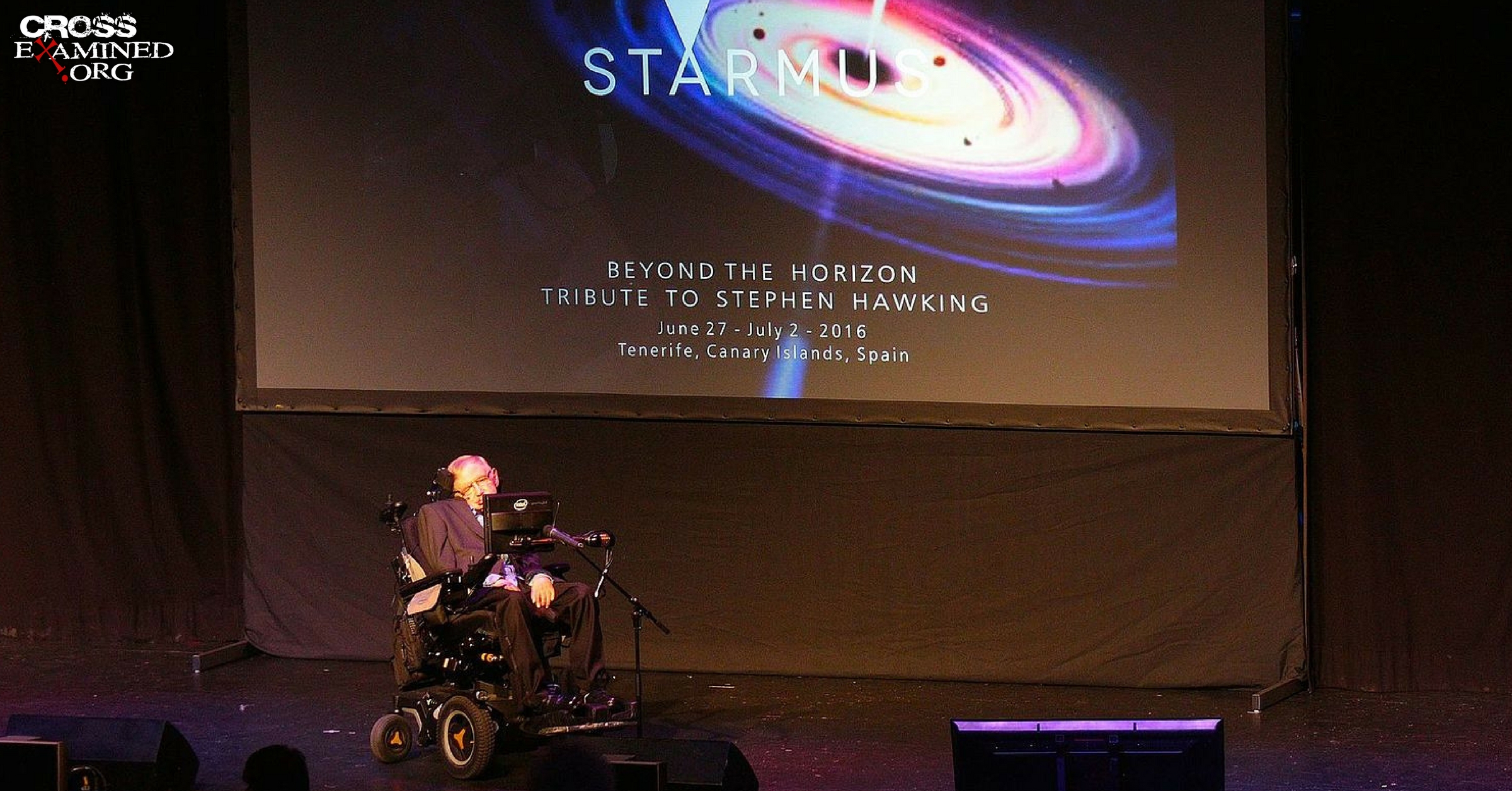Para esta publicación, pondremos en práctica lo que hemos visto sobre argumentación y lógica proposicional.
Veamos un ejemplo sobre argumentación:
Si Dios no preconoce el futuro, o lo determina todo o juega al azar. Si Dios determina todo, entonces él es el autor del pecado. Si Dios juega al azar, entonces él no es soberano. Dios es soberano, pero él no es el autor del pecado. Dios es soberano. Dios no es el autor del pecado. Por consiguiente, Dios no determina todo. Se sigue que, Dios no juega al azar. Dios no determina todo y Dios no juega al azar. No es el caso que, o Dios determina todo o Dios juega al azar. Como resultado, no es el caso que Dios no preconoce el futuro. Por lo tanto, Dios preconoce el futuro.
Lo que haremos es formalizar el argumento anterior y ver si realmente tiene una estructura lógica válida (no nos enfocaremos en el contenido; es decir, la veracidad de las premisas). Para ello primero debemos asignar variables a las proposiciones que se están utilizando en el argumento:
F = Dios conoce el futuro
D = Dios lo determina todo
A = Dios juega al azar
P = Dios es el autor del pecado
S = Dios es soberano
Es importante que tengas a la mano la simbología de la lógica proposicional para este ejercicio si es que todavía no te la has aprendido, ya que no explicaré qué significa cada símbolo, abreviación ni tampoco de qué va cada regla utilizada, sólo me dedicaré a explicar el procedimiento utilizado.
Ahora traduzcamos el argumento del lenguaje natural al formal:
- ¬F → (D v A)
- D → P
- A → ¬S
- S ^ ¬P
- S (Simp, 4)
- ¬P ^ S (Conm, 4)
- ¬P (Simp, 6)
- ¬D (MT, 2, 7)
- ¬¬S (DN, 5)
- ¬A (MT, 3, 9)
- ¬D ^ ¬A (Conj, 8, 10)
- ¬ (D v A) (De M, 11)
- ¬¬F (MT, 1, 12)
- F (DN, 13)
¿Complicado? No te preocupes, ahora iremos paso a paso para que puedas entenderlo mejor.
En el artículo sobre lógica y argumentación, vimos que en el discurso se pueden encontrar varias proposiciones que sirven de premisas para varias conclusiones; este es uno de esos casos. En el argumento se establecen cuatro premisas. En el siguiente cuadro, a la derecha se presentan los enunciados y a la izquierda su respectiva forma lógica:
| 1. ¬F → (D v A)
|
Si Dios no preconoce el futuro, o lo determina todo o juega al azar. |
| 2. D → P
|
Si Dios determina todo, entonces él es el autor del pecado. |
| 3. A → ¬S
|
Si Dios juega al azar, entonces él no es soberano. |
| 4. S ^ ¬P
|
Dios es soberano, pero él no es el autor del pecado. |
Observa que en la primera proposición se ha omitido el indicador de consecuente “entonces”, ya que no siempre es necesario utilizarlo para hablar sobre enunciados condicionales, muchas veces lo presuponemos. También observa que la cuarta proposición no hay un “y” que indica la conjunción, esto es porque el “pero” también sirve para indicar conjunción; a veces la coma y el punto y coma tienen la misma función, recuerda poner atención en estos detalles. Sigamos con la explicación:
| 5. S (Simp, 4)
|
Dios es soberano. |
Enumerar nuestras premisas y conclusiones del argumento es importante para indicar en qué premisa hemos aplicado una regla de inferencia. Cuando formalizan argumentos de esta manera, se recomienda colocar a la derecha de la premisa y entre paréntesis la regla de inferencia que se ha utilizado en su forma abreviada, por lo que en este caso, la premisa (5) se ha inferido de la premisa (4) por la regla de simplificación. Continuemos:
| 6. ¬P ^ S (Conm, 4)
|
Dios no es el autor del pecado y Dios es soberano. |
| 7. ¬P (Simp, 6)
|
Dios no es el autor del pecado. |
Para simplificar una proposición compleja (6), se aplica la regla por conmutación, dejando así la proposición que queremos utilizar (¬P) del lado izquierdo y deshacernos de aquella proposición que no queremos (S) en el lado derecho. Por supuesto, la conmutación se puede omitir porque se presupone fácil, pero en este caso quiero llevarlos paso a paso por cada regla utilizada sin omitir ninguna.
| 8. ¬D (MT, 2, 7)
|
Por consiguiente, Dios no determina todo. |
La proposición (8) es la conclusión de (2) y (7) por medio de la regla de modus tollens. Observa más claramente este movimiento:
- (2) Si Dios determina todo, entonces él es el autor del pecado (D → P)
- (7) Dios no es el autor del pecado (¬P)
- (8) Por consiguiente, Dios no determina todo (¬D)
¿Ves? Ahora, sigamos:
| 9. ¬¬S (DN, 5) | No es el caso que Dios no es soberano. |
| 10. ¬A (MT, 3, 9) | Se sigue que, Dios no juega al azar. |
Hay que recordar que la regla de modus tollens es negar el consecuente, así que lo que ocurre en lenguaje formal es que la proposición que niega el consecuente siempre tiene que ser un negativo, por eso en el argumento enunciado de forma natural no hay ninguna proposición como “no es el caso que Dios no es soberano”; pero sí lo está en su forma lógica, (9), ¿por qué? Porque ocurre lo mismo que con la regla de conmutación, en el lenguaje natural también se suele omitir la regla de doble negación; pero no porque sea inútil o sea innecesaria; sino porque se presupone fácil. Recuerda la regla por modus tollens:
- P → Q
- ¬ Q
- ¬ P.
¿Así que, qué ocurre cuando tenemos un condicional cuyo consecuente es ya un negativo? Pues hay que negar esa proposición negativa:
- P → ¬Q
- ¬¬Q
- ¬P
Este es el razonamiento por el cual se procede en el lenguaje formal, aunque en el lenguaje natural nunca utilicemos una doble negación por simple economía; negamos una proposición negativa solo con usar su positivo o afirmativo (recuerda que la doble negación es una regla de equivalencia lógica). Veámoslo con el modus tollens de nuestro argumento presente:
- (3) Si Dios juega al azar, entonces él no es soberano (A → ¬S).
- (5) Dios es soberano. (S)
- (10) Se sigue que, Dios no juega al azar (¬A).
Para concluir (10) usamos (5) en lugar de (9) en lenguaje natural, pero como dije anteriormente, no quiero omitir ningún paso en el lenguaje formal para que ustedes estén al tanto de todas las reglas que se tienen que utilizar para validar un argumento. Sigamos con los últimos pasos que quedan:
| 11. ¬D ^ ¬A (Conj, 8, 10) | Dios no determina todo y Dios no juega al azar. |
| 12. ¬ (D v A) (De M, 11) | No es el caso que, o Dios determina todo o Dios juega al azar. |
| 13. ¬¬F (MT, 1, 12) | Como resultado, no es el caso que Dios no preconoce el futuro. |
| 14. F (DN, 13) | Dios preconoce el futuro. |
Ahora, observa que (1) tiene esta forma:
- ¬F → (D v A)
Como lo que queremos es demostrar que el antecedente es falso (Dios no preconoce el futuro), necesitamos negar el consecuente (Dios lo determina todo o juega al azar) por medio de modus tollens. Para ello necesitamos las negativas de ambas proposiciones, en este caso son (8) y (10), y dado que son conclusiones lógicamente válidas, podemos conjugarlas (11). Pero con la forma lógica de la conjunción no podemos utilizarla como premisa para realizar un modus tollens ya que son formas lógicas distintas:
Consecuente de (1): (D v A)
Conjunción: (¬D ^ ¬A)
Para poder negar el consecuente, requerimos de la forma lógica ¬ (D v A) y no (¬D ^ ¬A), ¿cómo la obtenemos? Muy fácil, por medio de una regla de reemplazo o equivalencia lógica, en este caso usamos las Leyes de Morgan, que nos dicen que la negación de una conjunción es la disyunción de las negaciones:
¬ (D v A) ↔ (¬D ^ ¬A)
La nueva forma lógica será nuestra premisa (12), por lo que ahora podemos realizar el modus tollens correspondiente:
- Si Dios no preconoce el futuro, o lo determina todo o juega al azar (¬F → (D v A)).
- No es el caso que, o Dios determina todo o Dios juega al azar (¬ (D v A)).
- Como resultado, no es el caso que Dios no preconoce el futuro (¬¬F).
Y por último, sólo nos resta aplicar la regla de doble negación sobre (13), que es la proposición no es el caso que Dios no preconoce el futuro (¬¬F) para para obtener su afirmativa, Dios preconoce el futuro (F).
Espero que con este ejemplo puedas ver la utilidad de conocer las reglas de inferencia y equivalencia lógica al momento de construir argumentos.
Bibliografía recomendada
- P. Moreland y William Lane Craig, “Logic and Argumentation” en Philosophical Foundations for a Christian Worldview.
- Irving M. Copi y Carl Cohen, Introducción a la Lógica
- Irving M. Copi, Lógica Simbólica
- Anthony Weston, Las Claves de la Argumentación
Jairo Izquierdo es el fundador de Filósofo Cristiano. Es autor y director de Social Media para la organización cristiana Cross Examined. Es miembro en la Christian Apologetics Alliance, estudia filosofía y es ministro de alabanza en la iglesia cristiana bautista Cristo es la Respuesta en Puebla, México.










